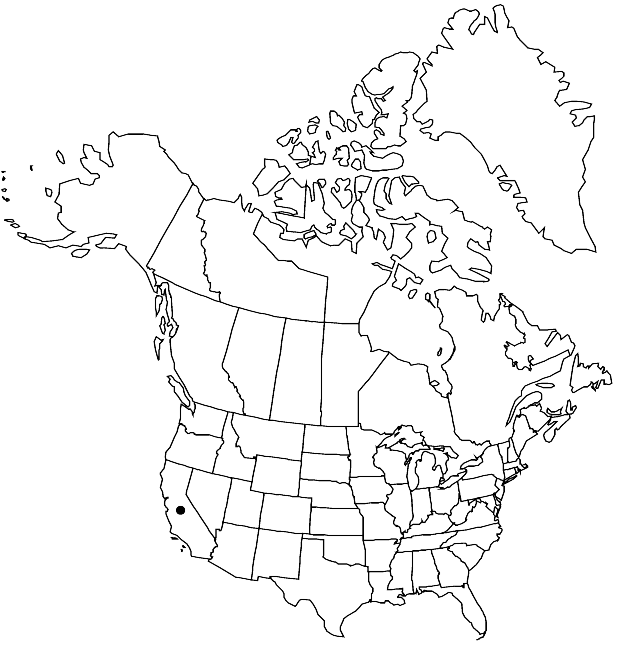Cardamine pachystigma
Harvard Pap. Bot. 1(4): 45. 1993.
Perennials; glabrous. Rhizomes ovoid to oblong, (3–)4–18 mm diam., (fleshy, deeply underground). Stems erect, unbranched, 1–3 dm. Rhizomal leaves simple, 1.2–2.3 cm; petiole 6.7–19.5 cm; blade orbicular to reniform, or cordate to broadly ovate, 2.7–5.5 cm × 30–68 mm, base cordate to subtruncate, margins with obtuse teeth terminating in apiculae. Cauline leaves 2–5, (crowded distally), simple; petiole 0.3–2.6 cm, base not auriculate; blade similar to basal, 1.8–5.5 cm × 12–47mm, base cuneate or obtuse to subcordate, marginal teeth apiculate. Racemes ebracteate. Fruiting pedicels divaricate to ascending, 7–24 mm. Flowers: sepals oblong, 4–7 × 2–2.5 mm, lateral pair saccate basally; petals usually pink or purple, rarely white, obovate to oblanceolate, 14–18 × 5–7 mm, (claw to 9 mm, apex rounded); filaments: median pairs 7–8 mm, lateral pair 5.5–6.5 mm; anthers oblong, ca. 1.5 mm. Fruits linear, 3.2–5.4 cm × 2.2–4 mm; ovules 10–14 per ovary; style 4–7 mm. Seeds brown, broadly ovoid, 2–2.8 × 1.8–2.5 mm.
Phenology: Flowering Mar–May.
Habitat: Forests, lava slides, talus, cliffs
Elevation: 700-2900 m
Discussion
Cardamine pachystigma is known from the disjunct counties of Plumas, Tehama, and Tulare.
Selected References
None.
